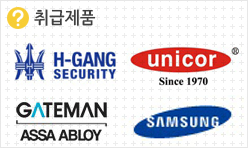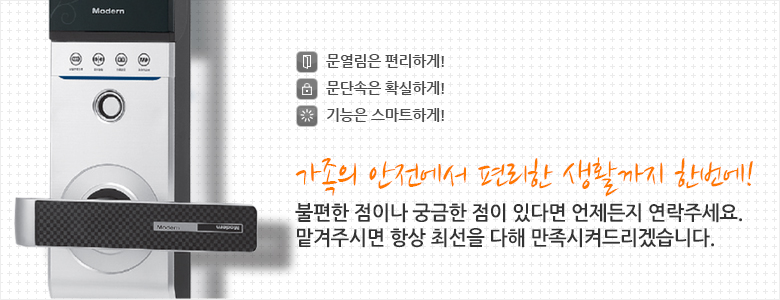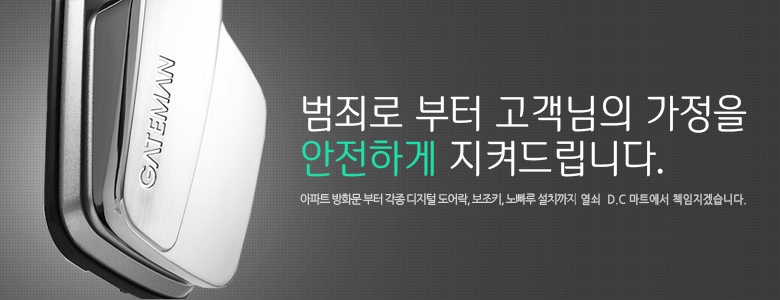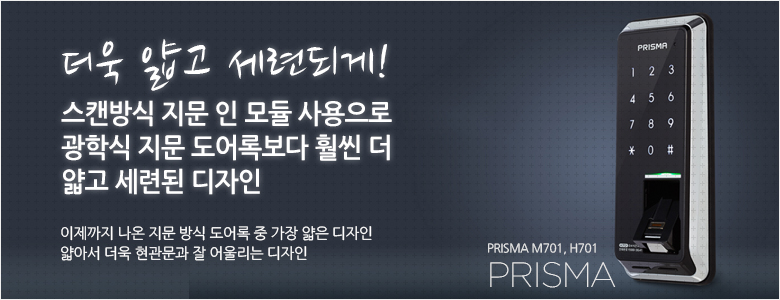5 Killer Quora Answers On Buy Fake Documents
페이지 정보
작성자 Dirk Paredes 작성일25-02-25 04:38 조회44회 댓글0건본문
연락처 :
주소 :
희망 시공일 :
The Growing Demand for Fake Documents: Dangers, Ramifications, and How to Identify Them
In an increasingly digitized and busy world, documents has ended up being the foundation of rely on individual, professional, and governmental deals. Whether it's identification cards, passports, motorist's licenses, or instructional certificates, legal documents assist in essential procedures and confirm credentials. However, a flourishing underground industry has actually emerged to exploit loopholes and accommodate numerous intentions-- selling fake documents. The expansion of fake documents raises major ethical, falschgeld online kaufen erfahrungen legal, and security issues that individuals and organizations require to deal with.
 This short article explores the phenomenon of purchasing fake documents, its risks, why people resort to it, its social impact, and tips for determining counterfeit records.
This short article explores the phenomenon of purchasing fake documents, its risks, why people resort to it, its social impact, and tips for determining counterfeit records.
What Are Fake Documents?
Fake documents are fraudulent imitations of legitimate documentation designed to imitate official records. These documents can range from simple IDs and diplomas to more intricate certificates, passports, visas, and fälschungen legal falschgeld kaufen legal (code.bitahub.com) even professional licenses.
Counterfeiters use sophisticated technology, including premium printers, specialized inks, and fälschungen online falschgeld kaufen ohne risiko bestellen, simply click the up coming webpage, graphic style tools, to create fake materials that typically simulate real documents. In some cases, fake documents are produced with stolen individual information, complicating the authentication procedure. The motivations for developing and buying these replicas can vary, from monetary scams and identity theft to bypassing legal barriers like migration and educational admission procedures.
Why Do People Buy Fake Documents?
Fake documents are not a brand-new phenomenon. The reasons that people acquire them vary widely:
Academic Pressure and Employment
Some people turn to fake degrees or certifications to secure tasks that require specific certifications. Faced with academic pressure or a competitive job market, they try to "faster way" their way to chances.
Migration and Travel Issues
Fake passports, visas, and residency authorizations are commonly searched for, particularly by individuals aiming to prevent immigration laws or go into restricted nations. In lots of instances, fake travel documents are used as part of human trafficking networks.
Financial Benefits
Fake IDs are frequently acquired to devote financial scams, such as requesting credit, opening checking account, or taking out loans under an incorrect identity.
Minor Access
Younger people may obtain fake IDs to bypass age constraints on alcohol, tobacco, or entry into clubs and bars.
Professional Fraud
For sophisticated counterfeiters, fake professional licenses (e.g., medical, engineering, or legal certifications) provide a way to generate income in rewarding fields without correct training or credentials.
The demand for fake documents continues to grow partly due to technological progress, that makes creating documents simpler and more difficult to identify.
Threats of Buying and Using Fake Documents
While the allure of fake documents might seem convincing to some, the consequences can be severe. Here are a few threats individuals need to think about:
Legal Offenses
Using fake documents is prohibited in nearly all countries. If captured, individuals might face penalties such as hefty fines, criminal charges, and prolonged jail time. In addition, those associated with producing or dispersing fake documents undergo even harsher penalties.
Ethical Dilemmas
Buying fake documents compromises ethical and ethical standards. It undermines merit-based systems and devalues the achievements of those who make their qualifications legitimately.
Track record Damage
Getting caught with fake credentials can totally derail a person's personal and professional life. Companies often blacklist individuals caught providing falsified academic or work experience documents.
Financial Risks
Low-grade fakes or rip-offs are rampant in this market. Many people end up losing money to fraudsters pretending to offer premium forgeries, just to get unusable or quickly detectable incorrect documents.
National Security Threats
On a macro level, the flow of fake documents postures substantial threats to nationwide security. Fake passports, identity cards, and licenses are frequently exploited by wrongdoers, terrorists, and smugglers, triggering federal governments to tighten their confirmation procedures.
Indications That a Document May Be Fake
While counterfeiters are becoming increasingly advanced, there are often obvious markers of fake documents. Here are some typical red flags to look out for:
Spelling or Grammar Errors: Typos in main documents are unusual. Always scrutinize the text for misspellings or bad grammar.
Low-Quality Materials: Genuine documents are generally printed on premium paper or [Redirect Only] include tamper-proof products like watermarks, holograms, and laser markings.
Improper Alignment and Design: Look for inconsistencies in alignment, typefaces, formatting, or logo designs in the document.
Absence of Security Features: Official documents often include advanced security features like barcodes, microprints, holographic seals, and ultraviolet-visible ink. Fake documents might lack these.
Authentication Failure: Always cross-check a document's authenticity with the issuing authority, particularly for scholastic or professional certificates.
By being vigilant versus these indications, people and organizations can avoid making use of fake credentials.
How Governments and Organizations Are Combating Fake Documents
As the supply of fake documents grows, so does the effort to cut their usage. Governments and companies are leveraging advanced security features and innovations to fight fraudulent documents:
Biometric Information
Federal governments are increasingly embedding biometric information (such as finger prints, iris scans, or facial recognition) into IDs and passports. This makes it harder for counterfeiters to reproduce.
Blockchain Technology
Blockchain is being used to secure and validate scholastic credentials and certificates, lowering circumstances of forgery.
Digital Authentication Services
Organizations are adopting digital tools to verify documents, including e-verification platforms and QR codes.
Public Awarenes Campaigns
Educational projects help people comprehend the dangers of fake documents and provide info on correct verification channels.
These procedures, while efficient, require continuous updates to remain ahead of highly proficient counterfeiters.
Frequently Asked Questions About Buying Fake Documents
1. Is it legal to buy fake documents?
No, acquiring or utilizing fake documents is unlawful and punishable by law in most nations. Even ownership without intent to utilize can bring charges.
2. What takes place if I am caught utilizing a fake document?
Consequences might consist of fines, jail time, loss of professional opportunities, and damage to your reputation.
3. How can companies protect themselves from fake staff member documents?
Organizations should carry out extensive background checks, third-party confirmations, and file authentication through government-approved channels.
4. Why do individuals risk their lives and professions for fake documents?
Many people resort to fake documents out of desperation, whether for employment, immigration, monetary factors, or to bypass age limitations.
5. How can I validate a document's credibility?
You can validate documents by:
Confirming information with the providing authority.
Inspecting for security features like watermarks and holographs.
Using digital confirmation tools.
Secret Takeaways: Protecting Yourself and Society
Fake documents might look like a shortcut to fix immediate problems, but their consequences are far-reaching. They undermine foundational systems of trust, pose security hazards, and drawback those who follow the rules. Governments, corporations, and teachers need to remain vigilant, embrace innovative innovations, and educate individuals about the legal and ethical repercussions of engaging with deceitful documents. Similarly, people must stay away from such activities and report suspicious stars to authorities to suppress this growing concern.
By attending to the problem together, society can preserve the integrity of official documents and their vital role in building a more safe and credible world.
주소 :
희망 시공일 :
The Growing Demand for Fake Documents: Dangers, Ramifications, and How to Identify Them
In an increasingly digitized and busy world, documents has ended up being the foundation of rely on individual, professional, and governmental deals. Whether it's identification cards, passports, motorist's licenses, or instructional certificates, legal documents assist in essential procedures and confirm credentials. However, a flourishing underground industry has actually emerged to exploit loopholes and accommodate numerous intentions-- selling fake documents. The expansion of fake documents raises major ethical, falschgeld online kaufen erfahrungen legal, and security issues that individuals and organizations require to deal with.
 This short article explores the phenomenon of purchasing fake documents, its risks, why people resort to it, its social impact, and tips for determining counterfeit records.
This short article explores the phenomenon of purchasing fake documents, its risks, why people resort to it, its social impact, and tips for determining counterfeit records.What Are Fake Documents?
Fake documents are fraudulent imitations of legitimate documentation designed to imitate official records. These documents can range from simple IDs and diplomas to more intricate certificates, passports, visas, and fälschungen legal falschgeld kaufen legal (code.bitahub.com) even professional licenses.
Counterfeiters use sophisticated technology, including premium printers, specialized inks, and fälschungen online falschgeld kaufen ohne risiko bestellen, simply click the up coming webpage, graphic style tools, to create fake materials that typically simulate real documents. In some cases, fake documents are produced with stolen individual information, complicating the authentication procedure. The motivations for developing and buying these replicas can vary, from monetary scams and identity theft to bypassing legal barriers like migration and educational admission procedures.
Why Do People Buy Fake Documents?
Fake documents are not a brand-new phenomenon. The reasons that people acquire them vary widely:
Academic Pressure and Employment
Some people turn to fake degrees or certifications to secure tasks that require specific certifications. Faced with academic pressure or a competitive job market, they try to "faster way" their way to chances.
Migration and Travel Issues
Fake passports, visas, and residency authorizations are commonly searched for, particularly by individuals aiming to prevent immigration laws or go into restricted nations. In lots of instances, fake travel documents are used as part of human trafficking networks.
Financial Benefits
Fake IDs are frequently acquired to devote financial scams, such as requesting credit, opening checking account, or taking out loans under an incorrect identity.
Minor Access
Younger people may obtain fake IDs to bypass age constraints on alcohol, tobacco, or entry into clubs and bars.
Professional Fraud
For sophisticated counterfeiters, fake professional licenses (e.g., medical, engineering, or legal certifications) provide a way to generate income in rewarding fields without correct training or credentials.
The demand for fake documents continues to grow partly due to technological progress, that makes creating documents simpler and more difficult to identify.
Threats of Buying and Using Fake Documents
While the allure of fake documents might seem convincing to some, the consequences can be severe. Here are a few threats individuals need to think about:
Legal Offenses
Using fake documents is prohibited in nearly all countries. If captured, individuals might face penalties such as hefty fines, criminal charges, and prolonged jail time. In addition, those associated with producing or dispersing fake documents undergo even harsher penalties.
Ethical Dilemmas
Buying fake documents compromises ethical and ethical standards. It undermines merit-based systems and devalues the achievements of those who make their qualifications legitimately.
Track record Damage
Getting caught with fake credentials can totally derail a person's personal and professional life. Companies often blacklist individuals caught providing falsified academic or work experience documents.
Financial Risks
Low-grade fakes or rip-offs are rampant in this market. Many people end up losing money to fraudsters pretending to offer premium forgeries, just to get unusable or quickly detectable incorrect documents.
National Security Threats
On a macro level, the flow of fake documents postures substantial threats to nationwide security. Fake passports, identity cards, and licenses are frequently exploited by wrongdoers, terrorists, and smugglers, triggering federal governments to tighten their confirmation procedures.
Indications That a Document May Be Fake
While counterfeiters are becoming increasingly advanced, there are often obvious markers of fake documents. Here are some typical red flags to look out for:
Spelling or Grammar Errors: Typos in main documents are unusual. Always scrutinize the text for misspellings or bad grammar.
Low-Quality Materials: Genuine documents are generally printed on premium paper or [Redirect Only] include tamper-proof products like watermarks, holograms, and laser markings.
Improper Alignment and Design: Look for inconsistencies in alignment, typefaces, formatting, or logo designs in the document.
Absence of Security Features: Official documents often include advanced security features like barcodes, microprints, holographic seals, and ultraviolet-visible ink. Fake documents might lack these.
Authentication Failure: Always cross-check a document's authenticity with the issuing authority, particularly for scholastic or professional certificates.
By being vigilant versus these indications, people and organizations can avoid making use of fake credentials.
How Governments and Organizations Are Combating Fake Documents
As the supply of fake documents grows, so does the effort to cut their usage. Governments and companies are leveraging advanced security features and innovations to fight fraudulent documents:
Biometric Information
Federal governments are increasingly embedding biometric information (such as finger prints, iris scans, or facial recognition) into IDs and passports. This makes it harder for counterfeiters to reproduce.
Blockchain Technology
Blockchain is being used to secure and validate scholastic credentials and certificates, lowering circumstances of forgery.
Digital Authentication Services
Organizations are adopting digital tools to verify documents, including e-verification platforms and QR codes.
Public Awarenes Campaigns
Educational projects help people comprehend the dangers of fake documents and provide info on correct verification channels.
These procedures, while efficient, require continuous updates to remain ahead of highly proficient counterfeiters.
Frequently Asked Questions About Buying Fake Documents
1. Is it legal to buy fake documents?
No, acquiring or utilizing fake documents is unlawful and punishable by law in most nations. Even ownership without intent to utilize can bring charges.
2. What takes place if I am caught utilizing a fake document?
Consequences might consist of fines, jail time, loss of professional opportunities, and damage to your reputation.
3. How can companies protect themselves from fake staff member documents?
Organizations should carry out extensive background checks, third-party confirmations, and file authentication through government-approved channels.
4. Why do individuals risk their lives and professions for fake documents?
Many people resort to fake documents out of desperation, whether for employment, immigration, monetary factors, or to bypass age limitations.
5. How can I validate a document's credibility?
You can validate documents by:
Confirming information with the providing authority.
Inspecting for security features like watermarks and holographs.
Using digital confirmation tools.
Secret Takeaways: Protecting Yourself and Society
Fake documents might look like a shortcut to fix immediate problems, but their consequences are far-reaching. They undermine foundational systems of trust, pose security hazards, and drawback those who follow the rules. Governments, corporations, and teachers need to remain vigilant, embrace innovative innovations, and educate individuals about the legal and ethical repercussions of engaging with deceitful documents. Similarly, people must stay away from such activities and report suspicious stars to authorities to suppress this growing concern.
By attending to the problem together, society can preserve the integrity of official documents and their vital role in building a more safe and credible world.
댓글목록
등록된 댓글이 없습니다.





